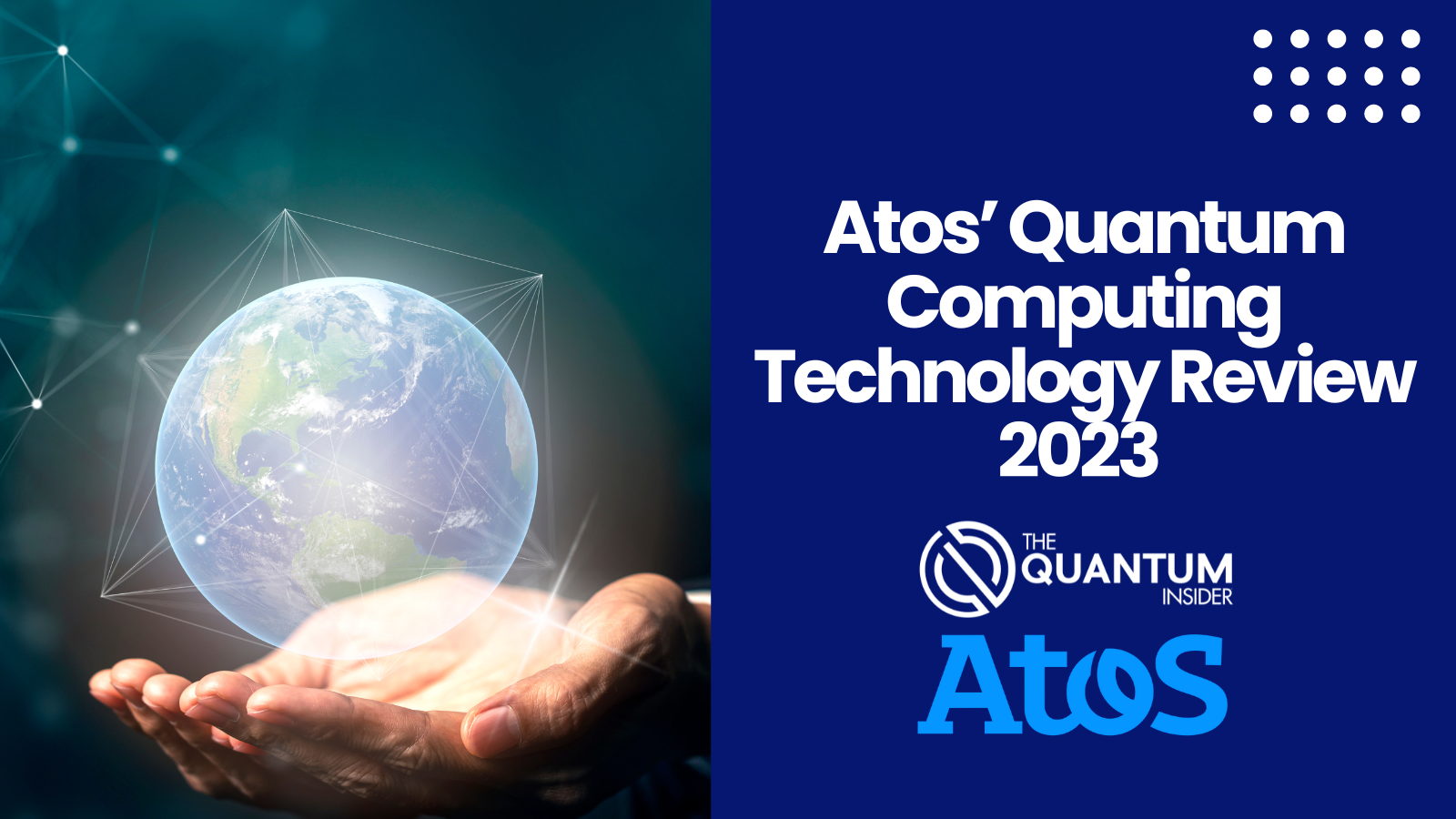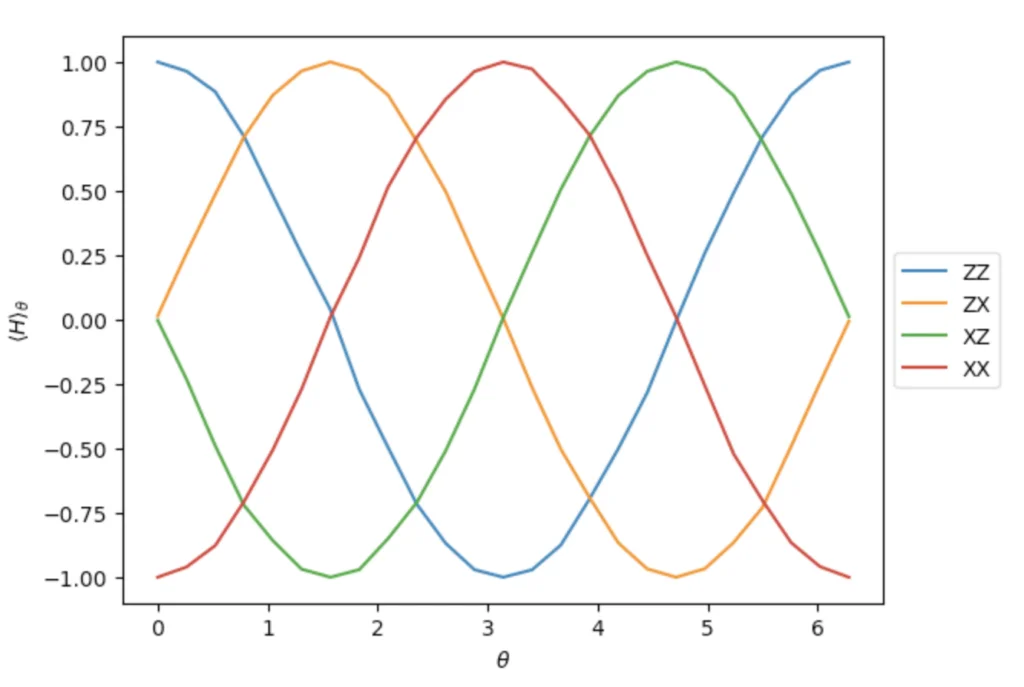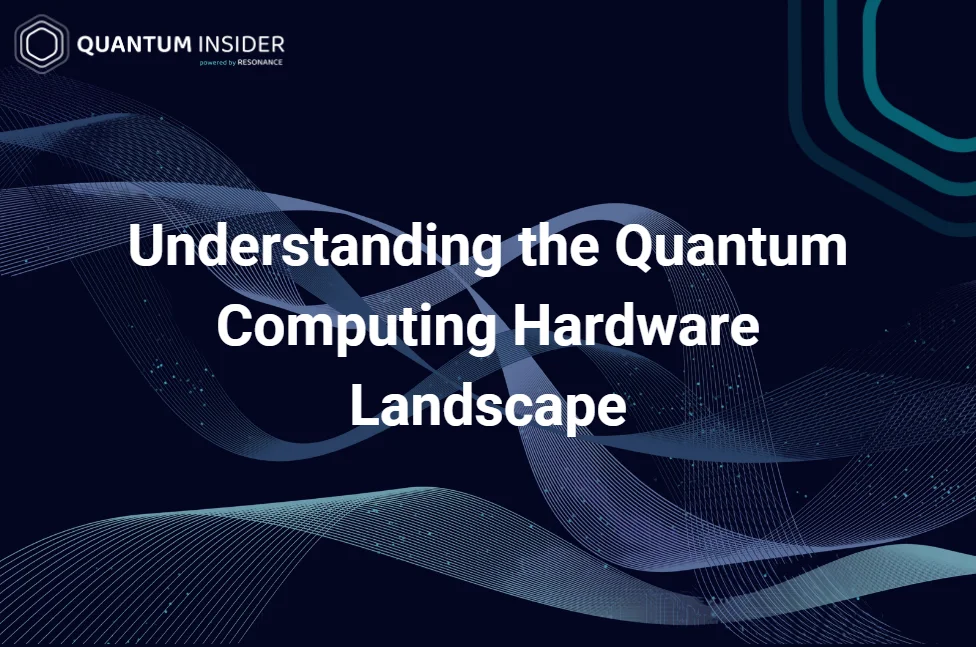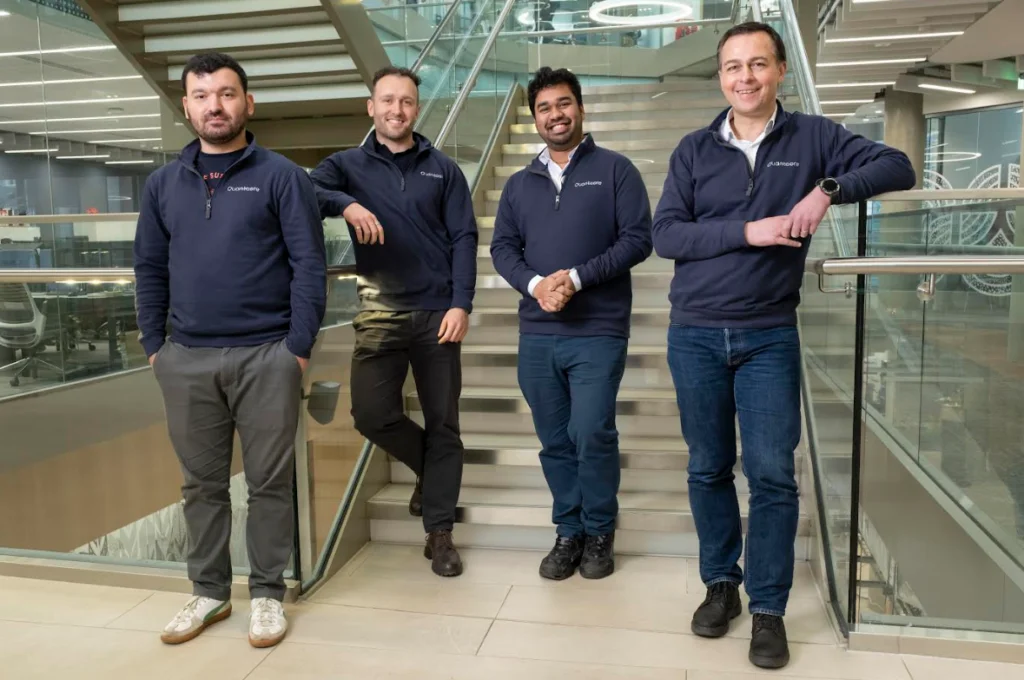In recent years, quantum computing has emerged as a promising field of research with the potential to revolutionize various industries. At the forefront of this technological advancement is Atos, a leading global provider of digital transformation and quantum computing solutions. This review delves into Atos’ quantum computing technology, highlighting its primary products and ongoing projects.
Beginning of Atos’ Quantum Computing
Quantum computing leverages the power of quantum mechanics to address complex problems that seem to be beyond the capabilities of classical computers.
There are many areas where quantum computing is bringing huge potential, including pharmaceuticals, logistics, and supply chains, the financial world, and cybersecurity.
As a European player in cybersecurity, cloud computing and high-performance computing, Atos — a multinational information technology service and consulting company with headquarters in Bezons, France with a reported 100,000 or more employees — is playing its part too. Beginning in 2016, the company launched “Atos Quantum”, a program set up to develop quantum computing solutions, especially in the areas of industrial integration and development.

Plans then were for a quantum simulation platform that allowed researchers to test algorithms for future quantum computers, establishing a quantum algorithm development and programming cluster for the development of quantum applications, including Big Data, Artificial Intelligence, supercomputing, and cybersecurity, not to mention utilizing quantum and conventional supercomputer environments to enable new applications to exploit the potential of quantum computing. Additionally, Atos intended to do lots of R&D of new quantum-safe cryptography algorithms to protect applications against quantum methods, while maintaining existing safety standards that enabled the secure operation of the Internet and electronic commerce and the protection of personal information etc.
Before its showcase to the world, however, Atos Quantum was reviewed by the scientific council of Alain Aspect (2022 Nobel Laureate for Physics), David DiVincenzo, Artur Ekert, Daniel Estève, Serge Haroche (another Nobel Laureate in Physics), and Cédric Villani (Fields Medal winner).
On the launch, Thierry Breton, CEO and Chairman of Atos, said:
“The first quantum revolution, led in the early twentieth century by young Europeans of the likes of Einstein, Heisenberg, Pauli or Schrödinger, gave birth over the years to major inventions including superconductivity, transistor, laser, fibre-optic communications, MRI, GPS etc… Today, taking advantage of our expertise in supercomputers and cyber security, we are fully committed to the second quantum revolution that will disrupt all of our clients’ business activities in the coming decades, from medicine to agriculture through finance and industries. It’s a real collective, human and technological adventure that opens up to us. For those who liked the digital evolution they will love the quantum revolution.”
Recent growth
In 2019, the QLM Research Program was established by Atos and The STFC Hartree Centre as a means of testing and evaluating quantum algorithms in a manner that is agnostic of the quantum technology used. Part of that collaboration included the launch of The Joseph Fourier Prize in 2020, aimed at rewarding the work of researchers, academics and industrial scientists in Quantum Computing. The partnership also included Quantum Learning, which offers quantum consulting, specialist expertise to explore algorithms and training and system admin support in QML.
Three years on and Atos’ quantum computing program is still ongoing. It’s important to highlight that Atos announced Eviden — an Atos business leading in digital, cloud, big data, and security — in 2022 and that there were plans to split its computing infrastructure business, under the “Atos” brand, into a services spinoff. Last October, Atos told Reuters it believed the split would be completed “effective at the earliest on July 1, 2023, and at the latest on December 31, 2023.”
In addition to offering AI solutions for HPC, Eviden will also provide edge computing, computer vision, HPCaaS, simulation, and “next-generation HPC. The company also planned a quantum computing product (which you can read about below).
Who is Behind Atos’ Quantum Computing?
The team of mathematicians and quantum physicists that initially reviewed Atos’ quantum computing platform all sit on the company’s Quantum Advisory Board. Taking advice from them are Nourdine Bihmane (Group CEO and Co-CEO), Philippe Oliva (Group Deputy CEO and Co-CEO), Diane Galbe (Senior Executive Vice President), as well as half a dozen others on the Executive Board. Furthermore, Eric Eppe is VP for portfolio and strategy for HPC, AI and Quantum Computing for the Eviden Atos Group.
The Atos Quantum Offerings
Atos QLM
Researchers, engineers and students can create and test quantum software on the Atos Quantum Learning Machine (QLM), a complete on-premises environment (that can emulate circuits up to 41 qubits) with a powerful dedicated hardware infrastructure that includes quantum simulators and optimizers integrated into the system. Consequently, applications developed using the Atos QLM can be emulated or run on quantum accelerators without modification. By simulating physical noise, QLM produces a more realistic hardware quantum environment sensitive to physics.
Atos QLM E
Atos’ other innovative product as of 2023 in the quantum sphere is Atos Quantum Learning Machine Enhanced — Atos QLM E. According to the company’s website, users can simulate variational algorithms up to twelve times faster with the Atos QLM E, making it particularly useful for NISQ (Noisy Intermediate Scale Quantum) accelerators while also enhancing research on the Quantum Approximate Optimization Algorithm, the Variational Quantum Eigensolver / Variational Imaginary Time Evolution, Variational Quantum Factoring, and the Variational Quantum Classifier.
Q-score
Another thing to note is that Atos has its own free and universal quantum metrics reference, Q-score. The efficacy of this is that rather than measuring theoretical or physical performance, the Q-score measures a system’s effectiveness in handling real-life problems.
Atos’ Most Significant Quantum Computing Project
Now we will look at one of Atos’ most important projects in quantum:
Qaptiva
Last month Eviden launched Qaptiva, a new quantum computing service that allows users to develop and leverage real-world applications by applying novel quantum computing technologies. Qaptiva empowers enterprises, organizations and research centres to solve complex business and scientific challenges with advanced application development.
As per an Eviden press release from May 11th of this year, “Qaptiva offers all-in-one capabilities and a best-in-class development environment to write code once and seamlessly run it on different Quantum hardware, either on-premises or through the cloud. Designed to encompass in one place all quantum technologies provided by Qaptiva software partners, this platform provides developers, researchers, and scientists with all the necessary tools and resources (libraries, connectors, emulators, and compilers) to program, optimize, compile, emulate, and run code on a Quantum Processing Unit (QPU), delivering tangible results very rapidly without waiting for Large Scale Quantum (LSQ).”

In the same press release, Hyperion Research Chief Quantum Analyst Bob Sorensen was quoted as saying in the official announcement: “With the launch of Qaptiva, a complete as-a-service offer focused on applications development, Eviden is on the right path toward rapid innovation and adoption of Quantum Computing for enterprises and businesses. This allows Eviden to acquire new capabilities, extend its solutions to address new markets, and meet customer needs.” Sorensen also added that Eviden could leverage its HPC strength to support blended Quantum-HPC-AI efforts.
You may also like:
- Review of Google’s Quantum Computing Technology State in 2023
- Intel’s Quantum Computing Technology: An Overview [2022]
- AMD’s Patents Signalling a Deeper Commitment to Quantum?
Who are Atos’ Most Prominent Partners?
Eric Eppe has stated on record that Eviden/Atos has “a robust roster of customers from industry, government and academia, including some big HPC centres. Eppe continued by saying that Oak Ridge National Laboratory was its first big HPC centre customer, going on that industry’s POC tire-kicking in the quantum arena has started turning into firmer plans for specific applications. He cited France-based TotalEnergies as a prime example. “It is looking at material science, and at ways to capture CO2,” said Eppe, adding that Eviden/Atos has 40-plus customers as of May 2023.
Atos’ customers/partners in quantum have included over the last few years IQM, Aspen Systems, OVHcloud, and the Galician Supercomputing Center (CESGA).
How is Atos Quantum Computing Funded?
In 1997, two French IT companies merged to form Atos. In 2000, it merged with the Dutch company Origin B.V. to become Atos Origin. In 2002, it acquired KPMG Consulting, and in 2004, SchlumbergerSema.
Atos Origin announced the acquisition of Siemens IT Solutions and Services in 2010 and completed it in July 2011. After that, Atos went back to its original name.
There have been a series of mergers, which have included the acquisition of the IT subsidiary of Siemens, a controlling stake in French computing company, Bull SA, the acquisition of Xerox’s IT outsourcing business, as well as a global partnership with Google Cloud 2018 to help offer secure artificial intelligence systems.
Financially speaking, Atos’ quantum division is funded by Atos Group from its balance sheet. The business is in the process of a significant reorganization.
Conclusion
Atos’ quantum computing technology firmly positions the company, along with its subsidiary Eviden, as a formidable competitor to established vendors like IBM and Microsoft in the European HPC landscape. Although we are still in the early days of quantum, Atos is taking it very seriously.
If you found this article to be informative, make sure to explore more of the current quantum technology news here. If you would like to explore the quantum tech ecosystem in more detail, you should check out our dedicated market intelligence platform.
For more market insights, check out our latest quantum computing news here.
















